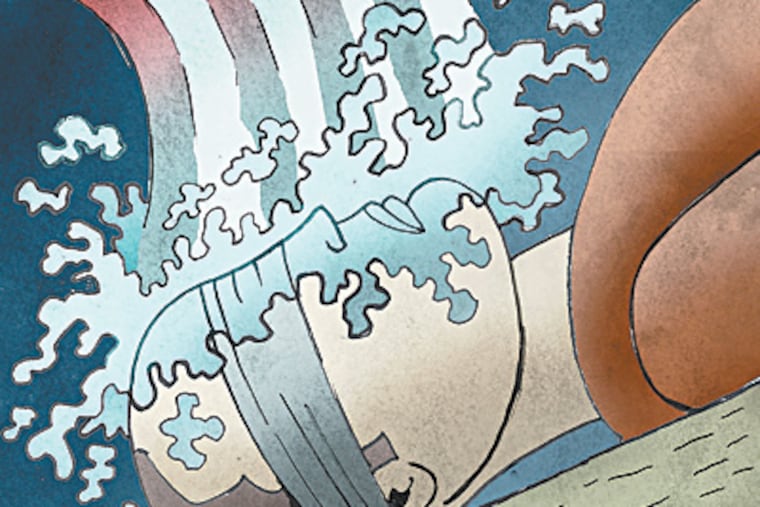Inquirer Editorial: 'Zero' movie is just a fantasy
The long-simmering debate over U.S. agents waterboarding and resorting to other brutal interrogation tactics to root out terrorist plots has been revived in Congress.

The long-simmering debate over U.S. agents waterboarding and resorting to other brutal interrogation tactics to root out terrorist plots has been revived in Congress.
Coincidentally, it will also play out this week across the nation's movie screens with the debut of a film dramatizing the fateful hunt for Osama bin Laden.
Given Hollywood's need to entertain, it may not be surprising that the Senate Intelligence Committee's exhaustive review of CIA documents on prisoner interrogations reaches a far different conclusion from that implied by the plot line of Zero Dark Thirty.
Confirming earlier reports, the three-year Senate study, which was approved last week, dismissed the notion that torture produced the intelligence breakthrough that led to the Navy SEAL raid last year in which bin Laden was shot dead.
Even more compelling, the broader conclusion to be drawn from the 6,000-page report, according to the panel's chair, Sen. Dianne Feinstein (D., Calif.), is that the Bush-era use of secret overseas prisons and "so-called enhanced-interrogation techniques were terrible mistakes."
In the bin Laden movie's fictional account, a detainee endures a brutal interrogation before revealing the name of the terrorist leader's courier - thus leading to bin Laden's lair in Pakistan.
Want to guess which version of reality will get the biggest audience? For now, at least, the movie will command center stage - solely because the Senate report remains classified until it can be reviewed by the White House, CIA, and other agencies. Only then will the Senate even vote on its public release.
The report's unveiling cannot come soon enough, since Americans have yet to be told in any sufficient detail what antiterror tactics were employed in the name of keeping them safe after the 9/11 attacks.
In the meantime, movie spies - bolstered by a minority of actual military and intelligence experts - will continue to make their case that torture works.
For their part, Senate Republicans on the intelligence committee don't go quite that far. Yet they lined up mostly in opposition to the CIA report. Indeed, the top GOP panel member, Sen. Saxby Chambliss of Georgia, derisively contended the document had yet to be fact-checked by the spy agency, that it relied solely on documents - rather than interviews - and that it was selective in drawing on the evidence.
Fortunately, there are other authoritative voices, including Defense Secretary Leon Panetta's, that dismiss as ineffective the subjection of terror suspects to harsh interrogations. Such tactics, now outlawed by presidential order, are unacceptable on moral grounds. In practical terms, they put U.S. soldiers at risk of being treated the same way if captured, and mostly yield misleading information from prisoners who will tell their captors whatever they think they want to hear.
As someone tortured in North Vietnam during the war, Sen. John McCain (R., Ariz.) certainly has solid credentials to weigh in on this debate. After reading the Senate report on CIA interrogations, McCain said he remains convinced that "the cruel, inhuman, and degrading treatment of prisoners is not only wrong in principle and a stain on our country's conscience, but also an ineffective and unreliable means of gathering intelligence."
Better than in any script, McCain's view should be the epilogue - and epitaph - for a dark period in the nation's fight against international terrorism.